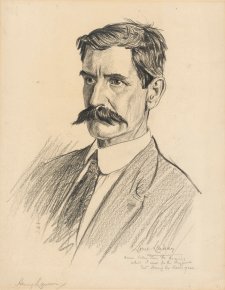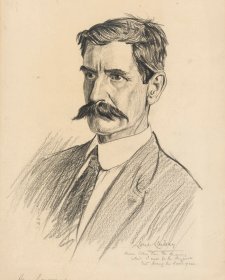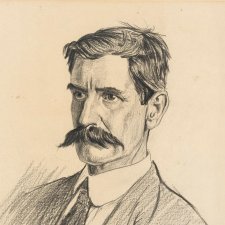In the first fifteen years of my life I saw the last of the Roaring Days on Gulgong goldfield, New South Wales. I remember the rush as a boy might his first and only pantomime. ‘On our selection’, I tailed cows amongst the deserted shafts in the gullies of a dreary old field that was abandoned ere Gulgong ‘broke out’. I grubbed, ring-barked, and ploughed in the scratchy sort of way common to many ‘native-born’ selectors round there; and worked on building contracts with ‘Dad’’ Saw selectors slaving their lives away in dusty holes amongst the barren ridges; saw one or two carried home, in the end, on a sheet of bark; the old men worked till they died. Saw how the gaunt selectors’ wives lived and toiled. Saw elder sons, sloop-shouldered old men at 30. I watched old fossickers and farmers reading Progress and Poverty earnestly and arguing over it Sunday afternoons. And I wished that I could write.
The droughts of the early eighties, and other troubles, burst a lot of us round there. I worked in coach-factories, tramped the cities in search of work; saw the haggard little group in front of the board outside the Herald office at 4 o’clock in the morning, striking matches to run down the ‘Wanted’ columns; saw the slums and the poor – and wished that I could write, or paint.
I heard Tommy Walker, and Collins, and the rest of ‘em, and, of course, a host of Yankee free-thought and socialistic lecturers and dreamed of dying on the barricades to the roar of the ‘Marseillaise’ – for the Young Australian Republic. Then came the unexpected and inexplicable outburst of feeling (or madness) – called then the Republican riots – in ’87, when the Sydney crowd carried a disloyal amendment on the Queen’s Jubilee, and cheered, at the Town Hall, for an ‘Australian Republic’. And I had to write then – or burst.













